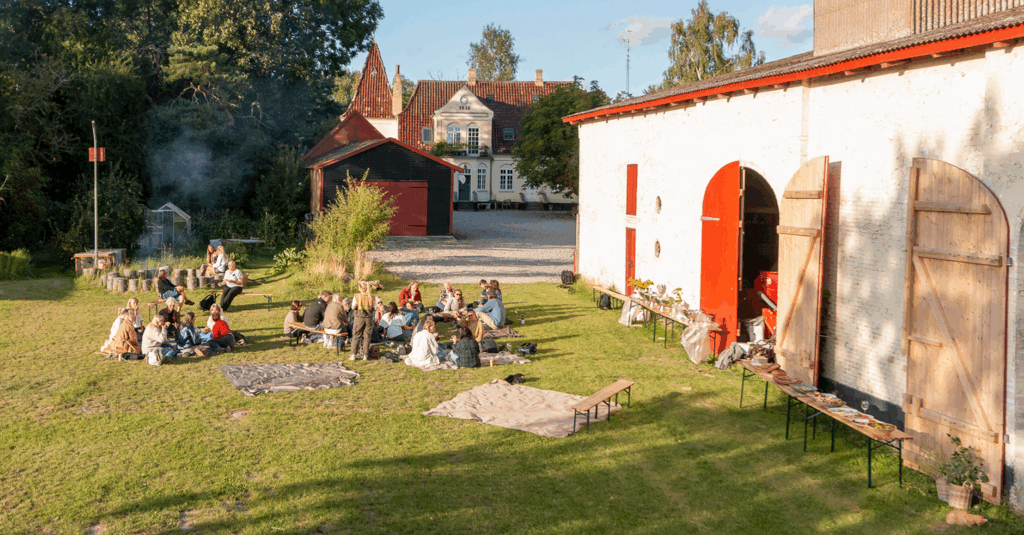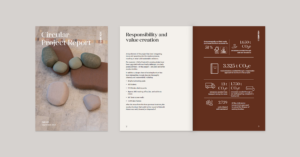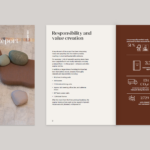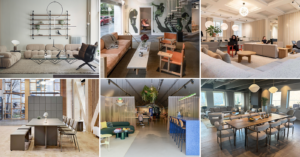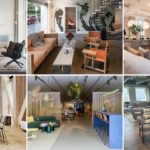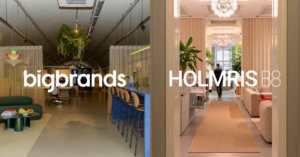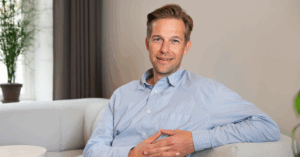When was the last time you chewed on pine needles or lay on your back in the grass and took a deep breath? For many of us, it’s been a long time – perhaps never. An international study published by The Guardian1 has shown that our time spent in nature has fallen by 60% over the past 200 years. It seems that nature may no longer feel quite so “natural” to us humans.
That’s why, together with Fischer Gardiner and Arkaia, we gathered 40 architects on a late summer evening to spend a day (re)discovering our connection with nature and rooting ourselves in a regenerative way of thinking.
A breaded bird on the menu
The journey took us to Øm Klostergaard, a 100-hectare farm and experimental site for regenerative agriculture developed in collaboration with Arkaia. Here, pioneers in farming are shaping the future while creating a hub for knowledge and networks in the field.
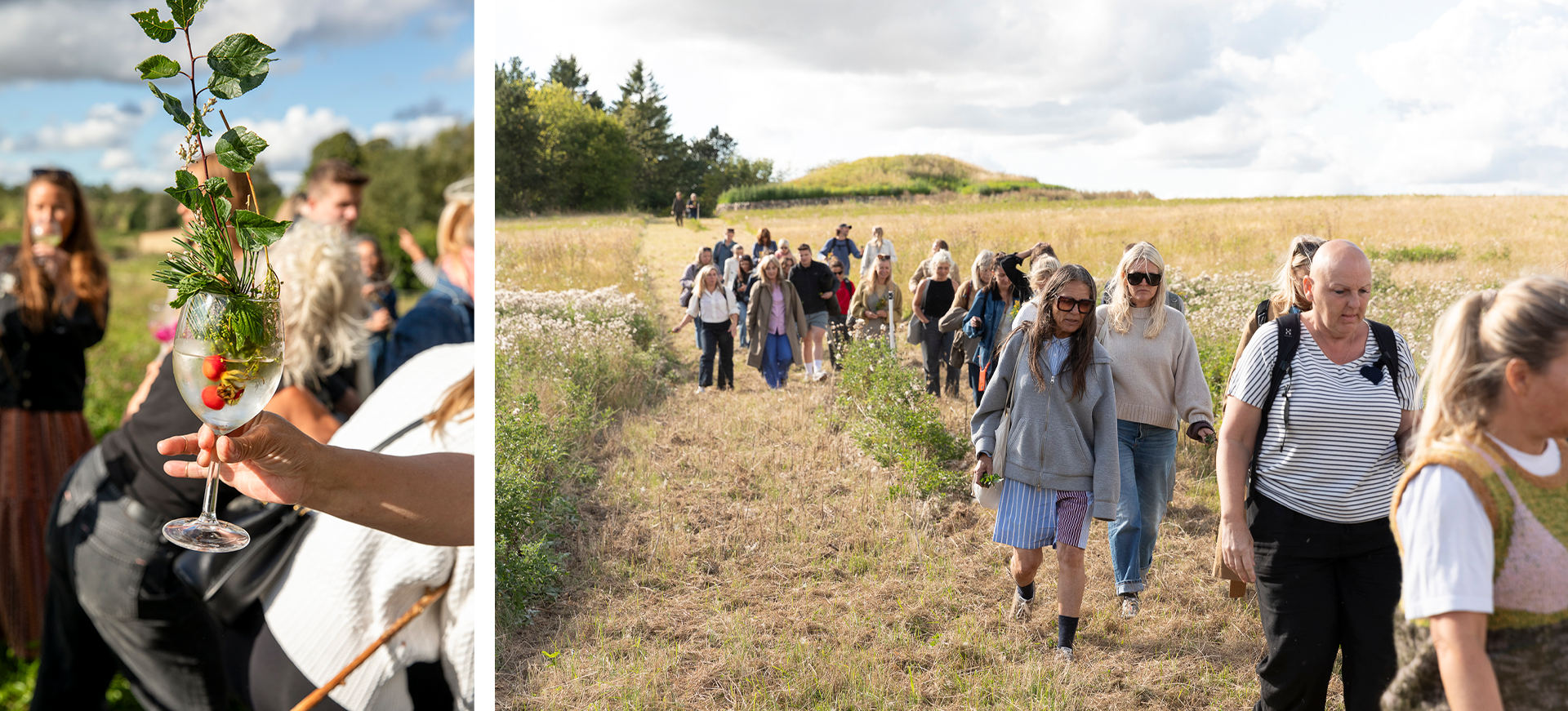
We spent the day with all our senses: meditating in the forest, stepping into Denmark’s oldest burial mound, foraging for edible herbs to turn into drinks, storytelling around the fire, and ending the day with a dinner made from local ingredients. It was all about grounding ourselves and opening up to what nature can offer.
One study2 has shown that 23% of Danes avoid nature simply because they don’t know what to do there, and another from 20193 revealed that 22% of young people under 30 believed a flounder was a bird.
22% of young people under 30 believed a flounder was a bird.
While the last example may raise a smile, researchers remind us that this “nature blindness” is serious. If we no longer know the names of the things around us, we also don’t realize what’s disappearing. This is why Arkaia’s mission is so vital. It shows us that the logic of nature can inspire us far beyond the fields and into the spaces we inhabit indoors.
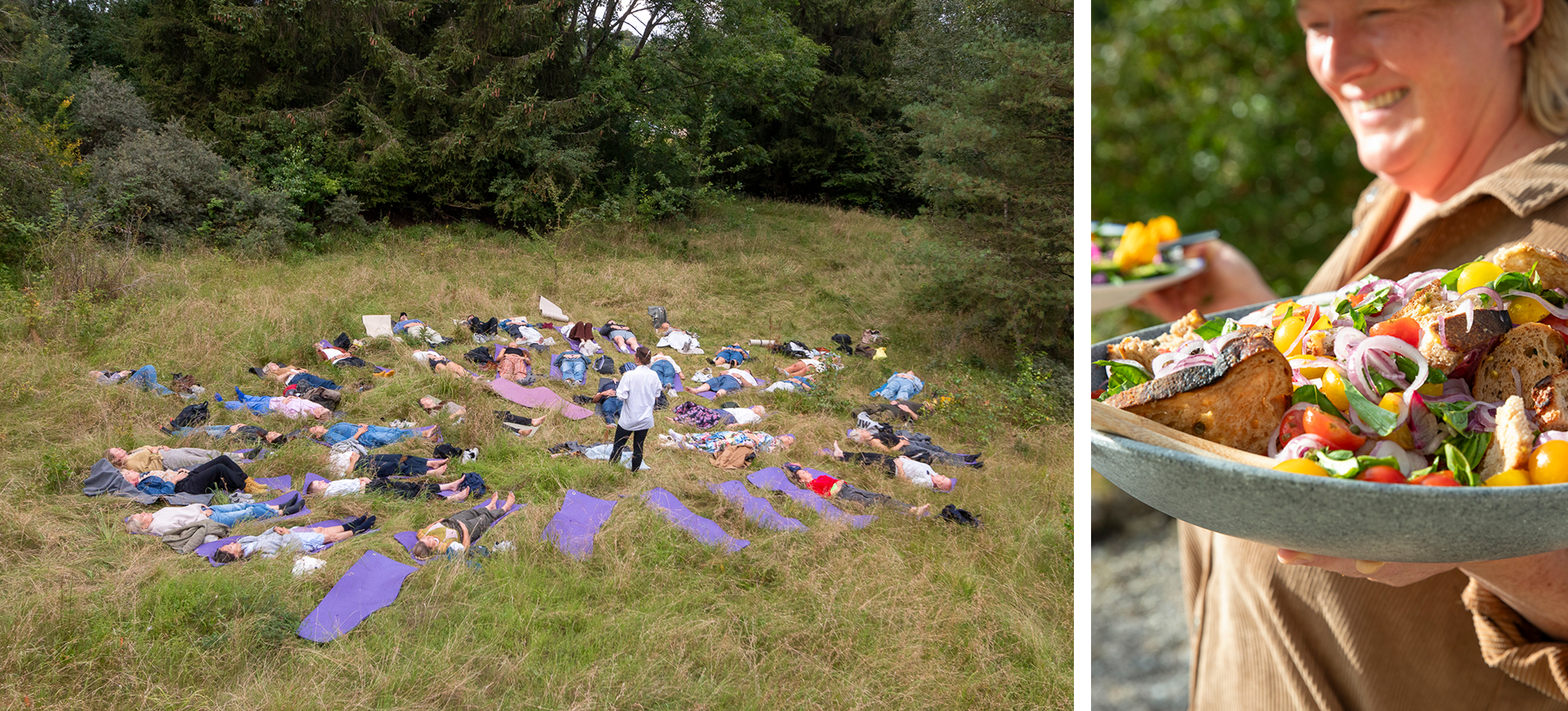
Nature is more than terracotta walls
Perhaps our growing distance from nature explains why big plants, earthy tones, and tactile materials have become so popular in interior design. But what happens if we let nature inspire us on a deeper level? If we actively rediscover our connection to it?
The answer isn’t simple, but maybe it begins by finding greater value in what we already have and by seeing our existing surroundings through regenerative eyes.
The mindset of spotting the potential in what we already have, has always been at the core of Holmris B8’s DNA. With a strong ambition to lead the furniture industry’s green transition, we work every day to embed circular thinking and responsibility through recycling, upcycling, and donating used furniture.
With limited resources, the process became a creative exercise in reusing and rethinking down to the smallest detail.
That’s why we gladly said yes when Arkaia asked us to help furnish Øm Klostergaard’s office space with a budget of just 35,000 DKK. We donated furniture from Labofa and our Recrafted collection, while Fischer Gardiner contributed with curtains. With limited resources, the process became a creative exercise in reusing and rethinking down to the smallest detail.

The result is a warm, soulful space where an old stable door hangs on the wall as art, discarded flooring has been reborn as tables, and Holmris B8’s Recrafted and Labofa furniture provide functionality with a modern touch. The office space stands as a clear example of how a circular approach not only supports Øm Klostergaard’s vision but also reflects Holmris B8’s ambition to reduce waste and embed circularity in the furniture industry.
Did we achieve what we set out for?
That summer evening showed us how nature’s regenerative principles can be translated into interior design, while the sensory experiences in nature gave us a true feeling of rediscovery.
But it also reminded us of something more fundamental: nature is not just an inspiration. It is the foundation of everything we do. When we slow down, we see our surroundings with fresh eyes and become better at appreciating and caring for the resources we’re surrounded by – both indoors and outdoors.
Would you like to capture the atmosphere of the day and see how a distinctive interior took shape on a modest budget? Then explore the beautiful photos below.
1. The Guardian, article: Human connection to nature has declined 60% in 200 years, study finds. 2025
2. Ritzau, article: More than every second family with children dreams of more time in nature. 2024
3. Zetland, article: Every fifth young Dane thinks a flounder is a bird. What do we lose when we lose the language of nature? 2019.

